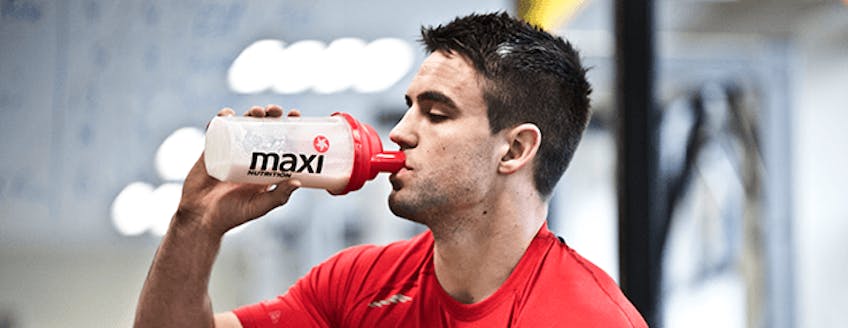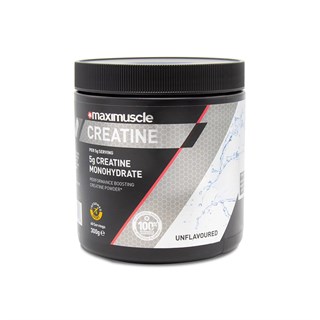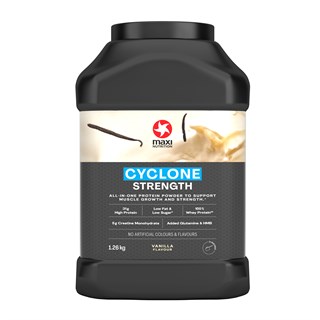You get out, what you put in but how important is nutrition?
From a recreational runner to an elite rugby player, any training goal is always believed achievable based on the training plan. The importance is often 100% focused on the training type, intensity and duration and any thought of nutrition is left as an afterthought. In truth, to help support goals nutrition should be viewed with a much higher priority. At Maximuscle we believe that the weight of priority should be 80% nutrition and 20% training. To help us explain this further we have enlisted the help of the Irish and Munster scrum half Conor Murray, to discuss his dietary habits, the science of nutrition and show how nutrition can support your training.
The Rugby Diet
The dietary reference intakes (DRI’s) for macronutrients are 45-65% carbohydrate, 10-35% protein and 20-35% fat. Modifications of these macronutrient percentages are dependent on a player’s goal. Predominately this should come from a food first approach but interspersed where appropriate with food supplements, perhaps due to convenience or ease.
The Science of Nutrition
It’s impossible to ‘train out’ a bad diet, therefore being accurate with the dietary recommendations is the perfect starting point. Since 1919 (Harris & Benedict), scientists have calculated a theoretical model to help determine an individual’s calorific requirements which has been adapted over the years to include activity adjustments. The more work completed, the more energy required.
| Weight | Height | Age | BMR | Activity Factor | Total KCal | CHO % | PRO % | FAT % |
| 94kg | 188cm | 26 | 2117 | 1.725 | 3652 | 60 | 20 | 20 |
| CHO (kcal) | PRO (kcal) | FAT (kcal) |
| 2191 | 730 | 730 |
| CHO (g) | PRO (g) | FAT (g) |
| 548 | 183 | 81 |
CHO per BM = 5.8
PRO per BM = 1.9
Based on Conor Murray’s weight, height and age, nutritional science would recommend that he consume 3652 kcal on training days, with 548 g of carbohydrate, 183 g of protein and 51 g of fat. This proposed diet is then manipulated depending on Conor’s training load, periodisation focus and recovery time.
Supporting Ireland’s Engine
As a scrum half Murray is at the heart of it all, the playmaker. Not a typical Scrum half at 94 kg (14.8 stone) and 188 cm (6 ft 2 in), Murray is a true advocate for the new breed of rugby player; strong, quick, athletic and powerful. It’s therefore paramount that his nutrition is spot on to provide the best possible support.
Here’s a typical daily diet for the Irish Scrum half:
| Time | Meal | Foods | Calories | Carbohydrate | Protein | Fat |
| 0800 | Breakfast | 2 poached eggs (2 large eggs) | 142 | 0.8 | 12 | 20 |
| Porridge (50g with semi-skimmed milk) and raspberries (~50g) | 314 | 35.3 | 4.9 | 3.3 | ||
| 1100 | Post Training | Promax Milk (330ml) | 212 | 19.8 | 30 | 0.7 |
| Apple (medium) | 95 | 25 | 0.5 | 0.3 | ||
| 1300 | Lunch | Vegetable soup (300g) | 162 | 18 | 5.4 | 6.3 |
| Turkey Steak (150g) with sweet potato (130g) and mixed salad (60g) | 358 | 28 | 57 | 1.5 | ||
| 1600 | Post Training | Maximuscle Promax (42g) | 161 | 2.5 | 30 | 2.4 |
| Banana (medium) | 105 | 27 | 1.3 | 0.4 | ||
| 1830 | Dinner | Chicken and bean stew (per serving) with butternut squash wedges (100g) and green beans (55g) | 428 | 45.9 | 40 | 11.2 |
| 2100 | Evening Snack | Low fat yoghurt (100g) with mixed nuts (30g) and blueberries (50g) | 287 | 22.3 | 11.1 | 16.5 |
| TOTAL | 2264 | 224.6 | 192.2 | 52 |
*Nutritional information calculated using the USDA Nutritional database
If we now make a comparison between reality and the theoretical guidelines for Murray’s diet, there are clearly some differences, this is not uncommon. The most noticeable difference is the carbohydrate quantity but often demand fluctuates, particularly in rugby, the carbohydrate levels can be altered to suit the player’s goal, whereas the protein and fat levels should remain fairly constant, irrespective of training load.
Of course it’s not all clean eating everyday and Conor, like his other rugby compatriots, enjoys an evening out, particularly if it's a celebration. Or in “sharing a beer with my opposite number after a tough battle”, says Murray. By his own admission, Conor is extremely partial to crisps, they are referred to as his Achilles heel.
Maximuscle Top Tips
Compiling your own nutrition plan can seem like a very daunting task, with lots of options to achieve the same result. Using Conor’s diet as an example, here are Maximuscle top tips to help you build your own strategy:
- Try to eat 5-6 smaller meals per day
- Each meal should be similar in nutritional balance (i.e. calorific amount)
- Eat every 2-3 hours
- Include protein in every meal to support muscle maintenance and development
- Limit the consumption of high sugar and high saturated fat foods
- Include 5 pieces of fruit and vegetables throughout the day
- Choose Low Glycaemic carbohydrates in your general diet, lean proteins and fibre rich foods
Murray Fun Facts:
- On average Murray burns 1040 kcal in a rugby match
- The average chicken breast contains 31 g of protein therefore Conor’s daily protein consumption is equivalent to more than 6 chicken breasts
- To support muscle development consume 20-40g of protein every 2-3 hours
- Nutrition is an important foundation to supporting a solid training structure
Product Support
Akin to many international scrum half’s, Murray falls into the ‘maintainers’ bracket, meaning that his nutrition strategy is to support his current stature, he consumes protein to help his muscle rebuild after playing or training. For that Conor uses Maximuscle Promax, both in the ready to drink shakes and the powdered format. Maximuscle Promax powder is a versatile product, as an alternative try adding it to porridge to increase the protein content of your breakfast or perhaps adding it to yoghurt for a high protein snack.
Promax contains 30 g of protein in each serving, it is low in sugar and naturally rich in glutamine and branched chain amino acids (BCAA’s).
Seeing an elite athlete, like Conor Murray, train you could be forgiven for saying that you could never do that. Talent and genetics aside, international rugby players get to represent their country on merit of the work that they do, both on the field and on the training ground. From a nutritional perspective, as illustrated by Conor, there’s no special recipe or magic ingredients. The magic is doing the basics right, avoiding the unnecessary, of course treating yourself from time to time but always staying focused on the goal.
















